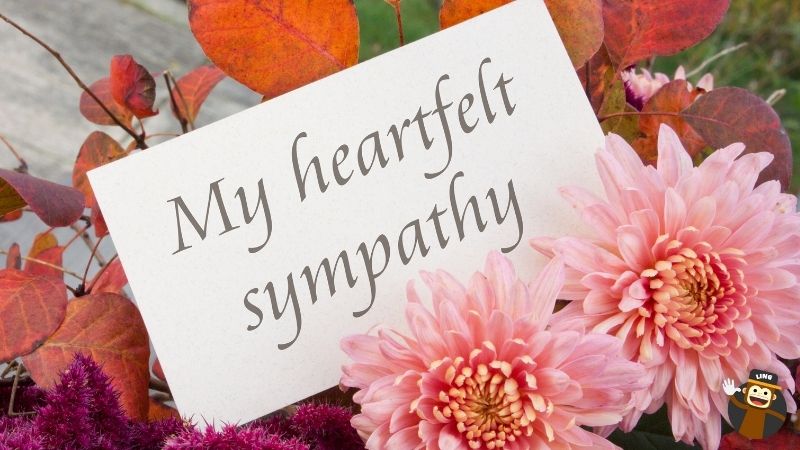In some cultures, ‘sorry’ is a ubiquitous saying you’ll often hear, such as in Canada or the United States. However, saying and hearing ‘sorry’ in Germany or a German-speaking country is a different story. You’ll be hard-pressed to hear older generations in Germany saying sorry in German at all. Hence, where the Germans are quite a brash stereotype came from
Nowadays, the younger generations are more apologetic, but they don’t throw around ‘sorry’ as people do in the west. There is also almost a caste system of ‘sorry,’ and you must become familiar with when to use these German phrases depending on the severity of the situation.
In some cases, you’ll be surprised to learn it’s not necessary or expected for anyone to offer an apology, which may seem rude at first, but some things are considered too small of an act to require an apology.
Let’s look at the different situations and ways to say sorry in German! The German pronunciation of ‘sorry’ can be pretty tricky, so we’ve added audio for you. Just click the blue button to listen and practice!
You may also be interested in learning about how to greet people in German and with their culture being a bit different, but still polite, how to say thank you in German as well.
How To Offer Apologies In The German Language
Formal And Informal Pronoun Use
The first thing to consider is who you’re speaking with. The German language has formal and informal pronouns for ‘you,’ which can be switched out depending on the situation.
- The formal pronoun for ‘you’ in German is: du
- The informal ‘you’ in German is: sie
To be cautious, you should address anyone you don’t know or anyone in a prominent role of authority with sie. If you need to apologize to friends, family, or close coworkers, then du is fine.
With all the apology examples, we’ll share with you an article, identify the pronoun (if any) and note that it should be changed to reflect the German culture of politeness.
The Simplest Ways To Say Sorry In German

Entschuldigung – This is one of the most ways to apologize quickly in German. It translates to “unguilt,” however it’s more commonly used to refer to ‘excuse me,’ or simply ‘sorry.’
Here are some real-life context examples of when you would use this apologetic saying:
‘Tschuldigung – Is an even simpler way to say sorry in German. It’s more of a slang way to apologize and is more commonly heard among the younger generation. Its translation is “excuse me.” It’s a handy phrase to learn as it’s applicable in most need to apologize quickly and in passing situations.
Here are some easy ways to use it:
| English Saying | German Apology | Pronunciation |
| ‘Scuse me, I didn’t see you there! | ‘Tschuldigung, ich hab dich nicht gesehen! | |
| ‘Tschuldigung! Scuse me! | ‘Tschuldigung! |
Sorry – Even the Germans have appropriated this phrase, and you’ll hear this said a lot on the streets of the bigger cities in Germany. This is just one example of how to use it, but you can also say the word on its own:
| English Saying | German Apology | Pronunciation |
| Hey guys, sorry, but I can’t come with you today. | Hey Leute, sorry, aber ich kann nicht heute mit kommen. |
ntschuldige Bitte – is a more formal yet, simple way to offer an apology. You may use it at a formal event when speaking to strangers or over email or hear this phrase used when transportation is delayed. Bitte means please, so Entschuldige Bitte translates to, “Please, excuse me…”
Here are some ways to use this phrase in more formal apology situations:
Verzeihung – is a way to apologize in German that is rather old-fashioned. It still has its place but is used less so in day-to-day use. It translates to ‘forgiveness’ or ‘forgive me’ and is often used to express the same intended meaning as excuse me or pardon. Here is one way you might use it:
| English Saying | German Apology | Pronunciation |
| I need to get through here. Excuse me. | Ich muss gerade durch hier gehen. Verzeihung. |
Bitte? – it can also be used on its own to express apologies. However, it’s used in a situation where you didn’t hear something or require clarification. Rather than its literal translation of “please,” bitte is used as a question such as, “sorry?”
Wie bitte? – is very similar in use but is a more formal apology. It directly translates to, “How please?” but is more understood as meaning, “I’m sorry?”
Here are some examples of how to use either phrase:
| English Saying | German Apology | Pronunciation |
| Sorry? I didn’t get that. | Bitte? Ich habe das nicht mitbekommen. | |
| I beg your pardon? Would you please repeat that? | Wie bitte? Würden Sie das bitte wiederholen? |
How To Express Regret In More Serious Situations In German
Sometimes a simple apology isn’t enough, nor is it appropriate. In Germany, you must mean your apology in more serious situations such as:
- When offering sympathy
- Apologizing sincerely if you’ve hurt someone (physically or emotionally)
- Expressing regret in a serious situation
- Apologizing in a business setting (in person or via email)
Offering Sympathy Or Expressing Condolences

There are times when your friend, family member, or coworker passes on some sad news or difficult information. It’s always polite to show compassion through a polite apology such as:
Expressing Regret
Sometimes we make poor choices. Sometimes we feel regret or guilt about these choices and wish to offer an apology. If you’re in a situation in Germany where you need to admit a mistake and offer remorse, these are a few ways you can express this feeling:
How To Apologize In A Business Setting

Apologies in business or the workplace should always be treated with respect. They can be offered in person, via social media, or by email. Should you be in a situation where you need to apologize sincerely while at work, here are a few ways you can do this:
How To Apologize In German For Small Mistakes
Sometimes we make tiny mistakes. These mistakes may seem insignificant, so you’ll want to gauge the reaction of those around you to see whether you should offer any sort of apologies, such as the first simple apologies we learned or any of these below:
How To Ask Forgiveness In German
If you’ve really messed up and you know that offering a standard apology just isn’t going to cut it, then you should try asking for forgiveness first.
This will allow you to feel the situation and see how to proceed with your apology. Here are some ways to ask for or seek out forgiveness:
Ready To Learn More German?
Now that you’ve learned the most popular ways to say sorry in German, you’re more prepared to start using these in everyday German conversation. Whether you’re on public transportation and bump into someone or step on someone’s foot, or in a formal situation that requires a sincere apology, you’ll now have a much clearer idea of what to say and how to react.
Learning German will help you avoid any social faux pas. Language learning does take practice and focus, and as fellow German learners will tell you, listening to the German pronunciation and accent is a crucial part of learning this language.
That’s where Ling comes in. Ling is an all-encompassing language app that has recorded real German speakers and adapted their voices into our AI system. With Ling, you’ll be able to listen to real Germans having real-life context conversations.
You’ll also learn to speak, read and write in German with our one-of-a-kind writing system that you complete using your finger directly on your phone. How cool is that?!
Ling App has over 10 million downloads, and we also offer over 60 languages.

















